5. Lukas Miko (71 Fragmente einer Chronologie des Zufalls)
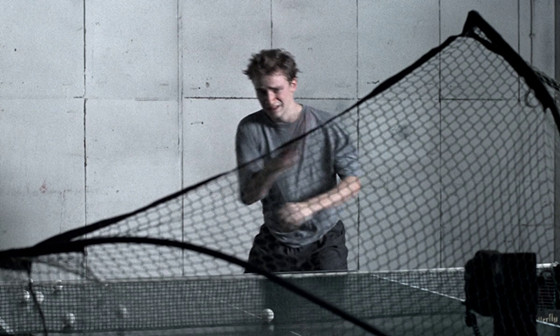
From the start we know that Miko’s character, Max, is going to commit a shooting, but we don’t know why or how. Haneke plays with our ignorance, giving the audience subtle clues about the motivations of Max, but a definitive answer is never provided.
Bit by bit, we see how Max gets frustrated by daily life. Miko makes Max seem absent, like he was disappointed by where his choices have gotten him. At times he reacts violently to random events.
This actor expresses a loner attitude in the film; we see Max practicing ping pong with a machine, implying that he has nobody to play with, and he gets increasingly frustrated with the monotone run of the machine.
He’s a student but isn’t very motivated; Max holds a passion for ping pong instead. We see him cheerfully talking on the phone with his mom (who he calls regularly), a few scenes after buying a gun for unknown purposes.
Lukas Miko’s performance is key to Michael Haneke’s intentions of keeping the shooter’s motive to the audience’s judgement. Max seems like a normal young person who is dissatisfied with his current life conditions, but most young individuals don’t shoot a bank full of people out of a deep sudden frustration.
Best Scene in the Film: The scene just before Max becomes a murderer is particularly tense, thanks to his stellar performance. He’s wandering a gas station in front of a bank, and we know that’s where the shooting is going to take place.
Every gesture Miko makes is under analysis; we want to know what triggers his anger. Some have their theories, but the most apparent one is that he got fed up by society’s individualism. But Miko’s realistic portrayal doesn’t leave us with easy solutions to the enigma.
4. Juliette Binoche (Code inconnu)
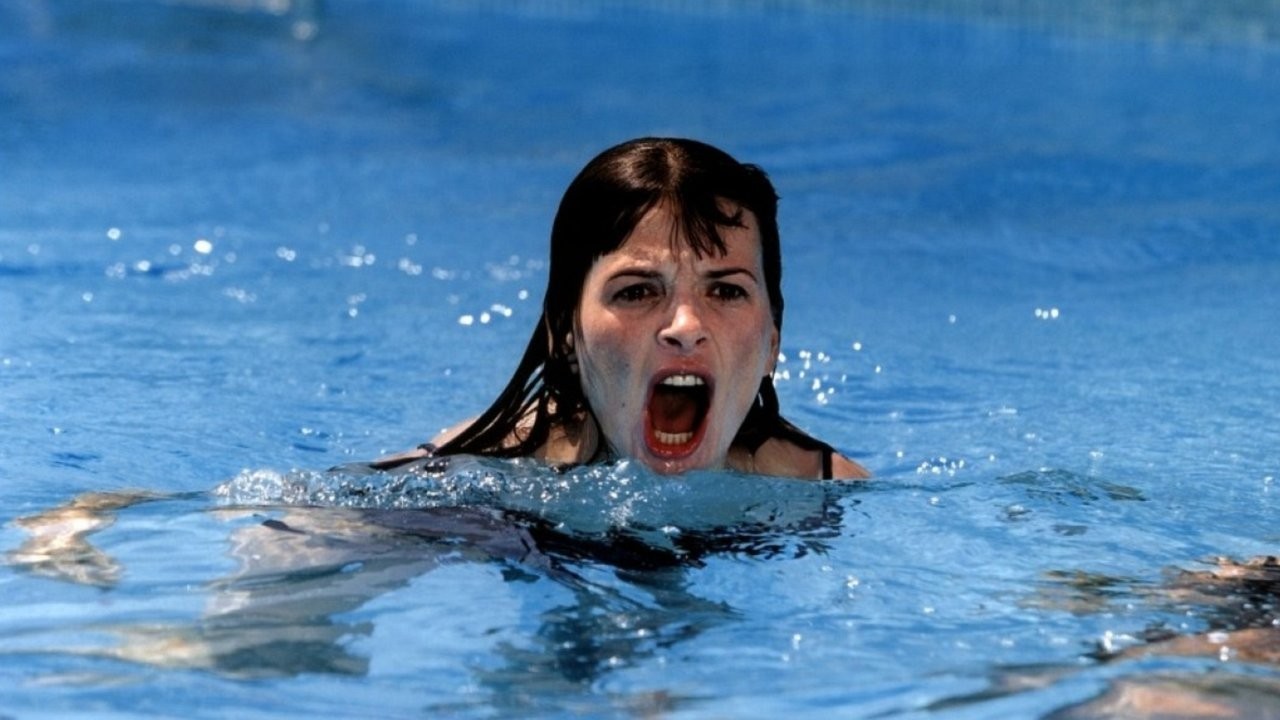
The French superstar delivers one of the best performances of her career, playing an actress with a busy love life and enormous talent.
Every performance on this list is nicely conditioned by Michael Haneke’s directing choices. “Code inconnu” holds a fragmented storytelling style that empathizes each actor’s powerful scenes, and Binoche stars in a lot of them. At times she carries the movie by herself, showing great range in performing intense dramatic scenes to comedic ones, with the same level of commitment and realness.
Sometimes it’s hard to differentiate the times when Binoche’s character is acting for a film, and when she’s just living her life. Both scenarios are equally interesting. Haneke plays with this idea, making us watch Binoche go through frightening situations, only for us to realize that we’re watching her act in a movie within the movie.
Juliette Binoche succeeds in portraying the sometimes tiring life of a Parisian actress, and she stands out in a film full of great performances.
Best Scene in the Film: In the first minutes of “Code inconnu”, we see Binoche going to an audition to star in a crime movie, in which the character she’s auditioning for is kidnapped.
For the whole fragment, she stares directly into the camera as the casting director films her audition and reads lines, playing her kidnapper. Binoche holds her sight deeply onto the spectator as she panics and demands to know the reason why the criminal wants to murder her.
For a moment we forget the scene is just an audition, as Binoche’s passion briefly tricks us into thinking she’s really being kidnapped, and soon to be murdered.
3. Jean-Louis Trintignant (Amour)
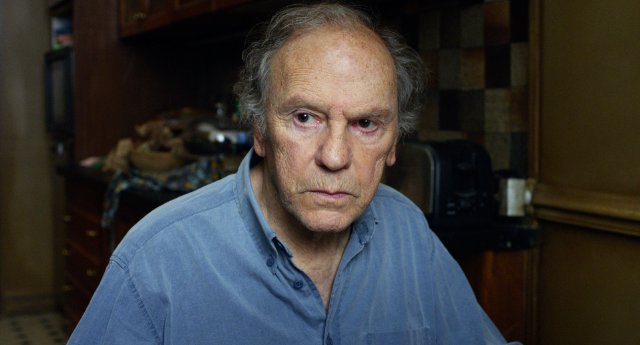
“Amour” is known for its heartbreaking story in which an old lady, named Anne, suffers a stroke and her mental features slowly degenerate, under the patient watch of her husband Georges. Trintignant plays said husband who is forced to be the pillar of strength that supports the couple’s decades-long relationship.
Georges does all he can to take care of his wife, but it never seems to be enough. Regardless of his constant efforts to keep Anne healthy, she keeps getting worse day by day. Trintignant depicts his frustration with subtlety, leaving artificial sentimentalism aside, as Haneke instructed his actors constantly during the film’s shooting.
Trintignant’s character can’t help but feel like he’s useless and constantly gets mad for being unable to stop or even slow his wife’s degeneration process. He dedicates the totality of his time to her and even tries to protect Anne’s dignity and memory, not letting their daughter see her when she’s in a very bad state.
Jean-Louis Trintignant constructs a complex character that is as hard to play as it is to watch without shedding a tear.
Best Scene in the Film: For what can be considered a master class in acting, Trintignant gives the most impressive performance by an actor in recent memory in the final scene of “Amour”.
Anne is confined to her bed all day, and she’s not able to speak. Georges sits next to her and starts telling a nostalgic story, with the bittersweet feeling of talking about a loved family member who is no longer alive. All of a sudden, Georges starts violently smothering Anne with a pillow, mercifully ending her life.
2. Emmanuelle Riva (Amour)
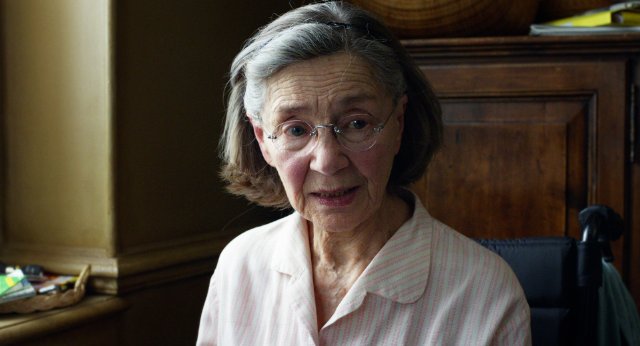
The main reason for the raging success for “Amour” (besides Haneke’s stellar directing) is Riva’s impressive acting.
It was extremely hard for Riva to force herself to play Anne, due to the similarities between the two of them. She got so deep into her character that Haneke had to remind her, several times, that the situation they were filming wasn’t real. Riva started feeling anxious and sad because of what her character was experiencing. She said her emotions were too familiar and nearby.
Riva’s performance was incredibly limited, due to the nature of Anne’s disease. The fragile state of Riva’s character forced her to express a cocktail of emotions in each scene; she had to portray the equivalent of an emotional roller coaster. Anne’s vulnerability was always accompanied by sentimental instability, so every attempt to portray her state of mind was going to be as hard as it could get.
Helped by Haneke’s dedicated direction, Riva was able to perfectly depict one of the hardest acting challenges ever written.
Best Scene in the Film: It’s hard to choose only one, honestly. Her acting in “Amour” is flawless. From being a sane loving wife who cares about her husband, to having an almost indiscernible stroke in the kitchen, to forgetting how to play the piano (being a former piano teacher), to slowly losing the ability to speak.
Riva’s performance is an incredible acting achievement, and it can only be topped by this list’s number one.
1. Isabelle Huppert (La pianiste)
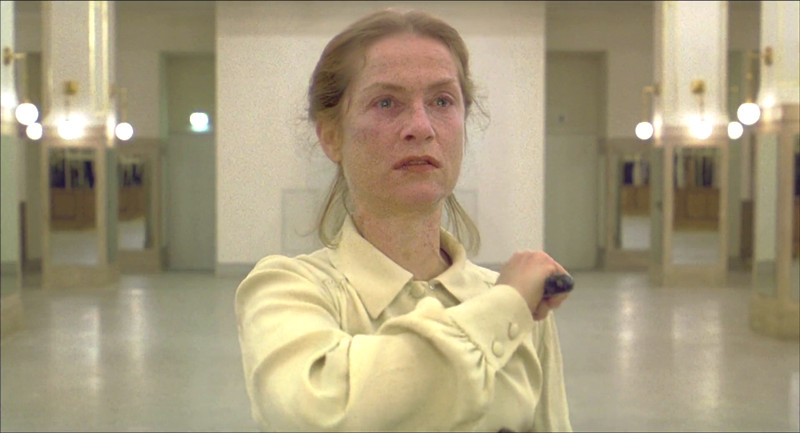
Michael Haneke loves to depict how reiterated repression can alter an individual’s personality. No matter the origin of said repression (political, religious, parental, etc.), it’s always dangerous to dictate a human’s behavior, guided by tradition, whim or convenience.
Erika Kohut (the film’s protagonist) had been pushed around by her mother since she was a little girl. Huppert’s character supports both of them economically with the money she earns by teaching piano lessons and working in a prestigious music academy.
Everything is fine and dandy until we start noticing Erika’s unusual conducts. She rejects an attractive gentleman, praising her piano skills in a recital; not in an “I don’t like you” way, but in a “my mom doesn’t let me have a boyfriend yet” way.
Then we see Huppert’s character entering a porn store cabin, strange enough for an attractive woman in her 30s; Erika smells used masturbatory tissues while she watches the videos. She seems intrigued by sex, in a very childish way. Huppert expresses subtle suffering in these scenes, like she doesn’t want anyone to think she’s weak; her little sexual rebellions (including performing small cuts on her vagina) are the only ones she permits herself, under her mother’s strict control.
Huppert’s naturality when performing the intense individual sexual scenes is frightening, like she completely forgets the fact that she’s being watched by a full film crew.
Erika has been forced into a life that she didn’t really seem to want. Her interest in music is apparent, but her expertise looks like a byproduct of her mother’s authority; she seems to have forced her daughter into becoming an expert pianist. Huppert understands this wonderfully, portraying Kohut as unhappy, but not really knowing why.
Erika doesn’t know how to stop being miserable neither. The protagonist thinks sex is the answer, for awhile, but her idea of sexual intercourse has nothing to do with love, but with domination and violence, which is all she’s known after a life under the despotic reign of her mother,
Best Scene in the Film: After a chaotic series of sexual failures and humiliations, Erika sees no light at the end of her tunnel.
She’s due to be the star piano player at a prestigious recital. But, after all she did to get that very competitive spot, she doesn’t experience fulfillment or happiness; the shadow of her failed sexual experiences is too big and dark to forget.
Taking a last look at the life she was forced to live, Erika finds the courage to stick a knife in her chest in an attempt to feel in control. Huppert uses all her acting talent to make this scene believable; Huppert’s facial expressions are intense, real and scary, as she performs this violent act on herself. Erika’s character finally chooses to lead her own life; she exits the concert hall with great determination.
Author Bio: Juan studies philosophy. He love films and music and plans to go to film school with his cat.